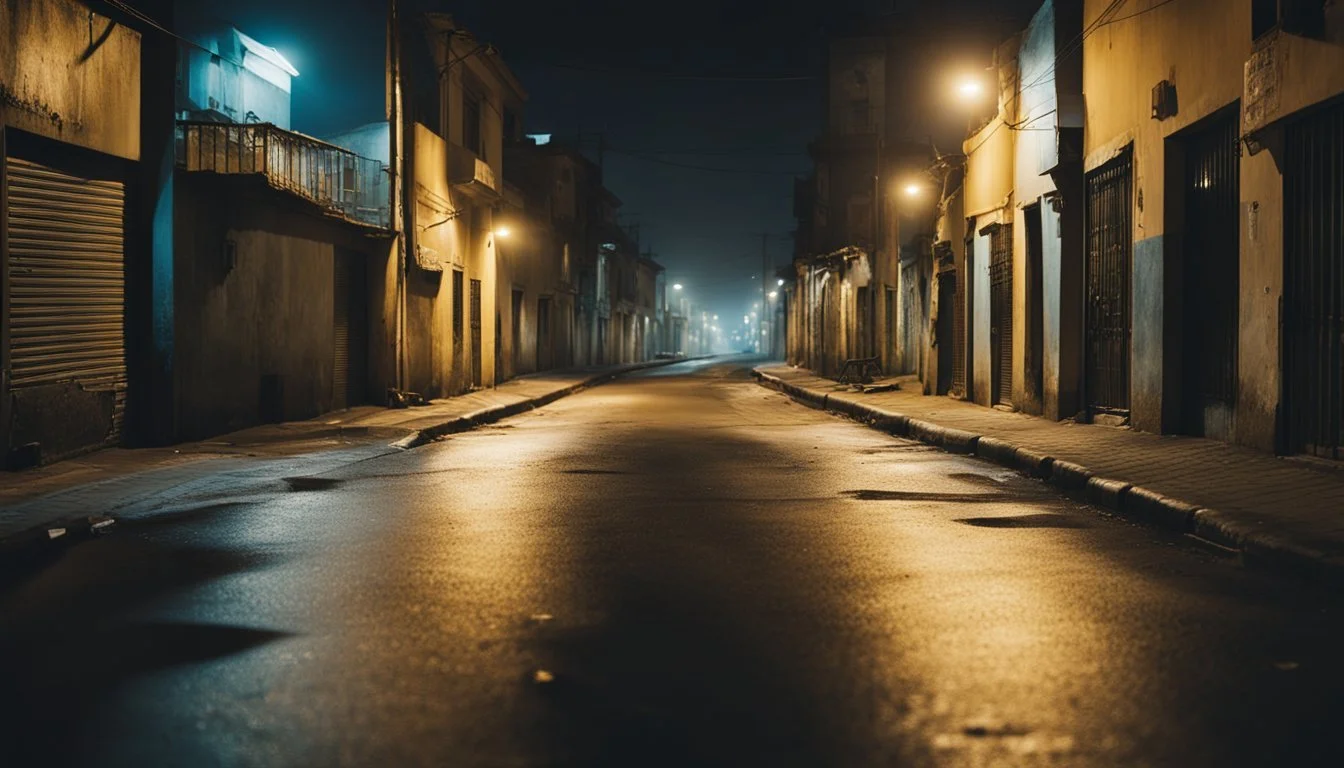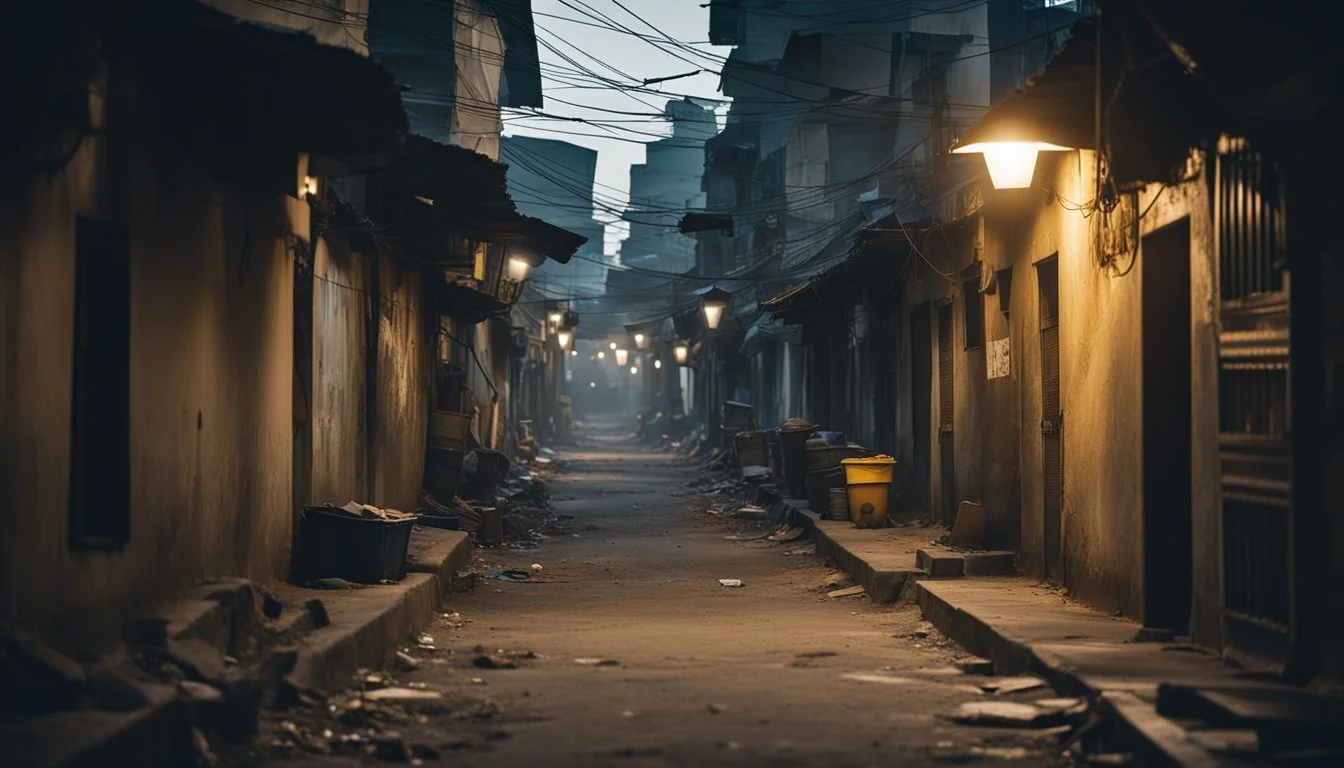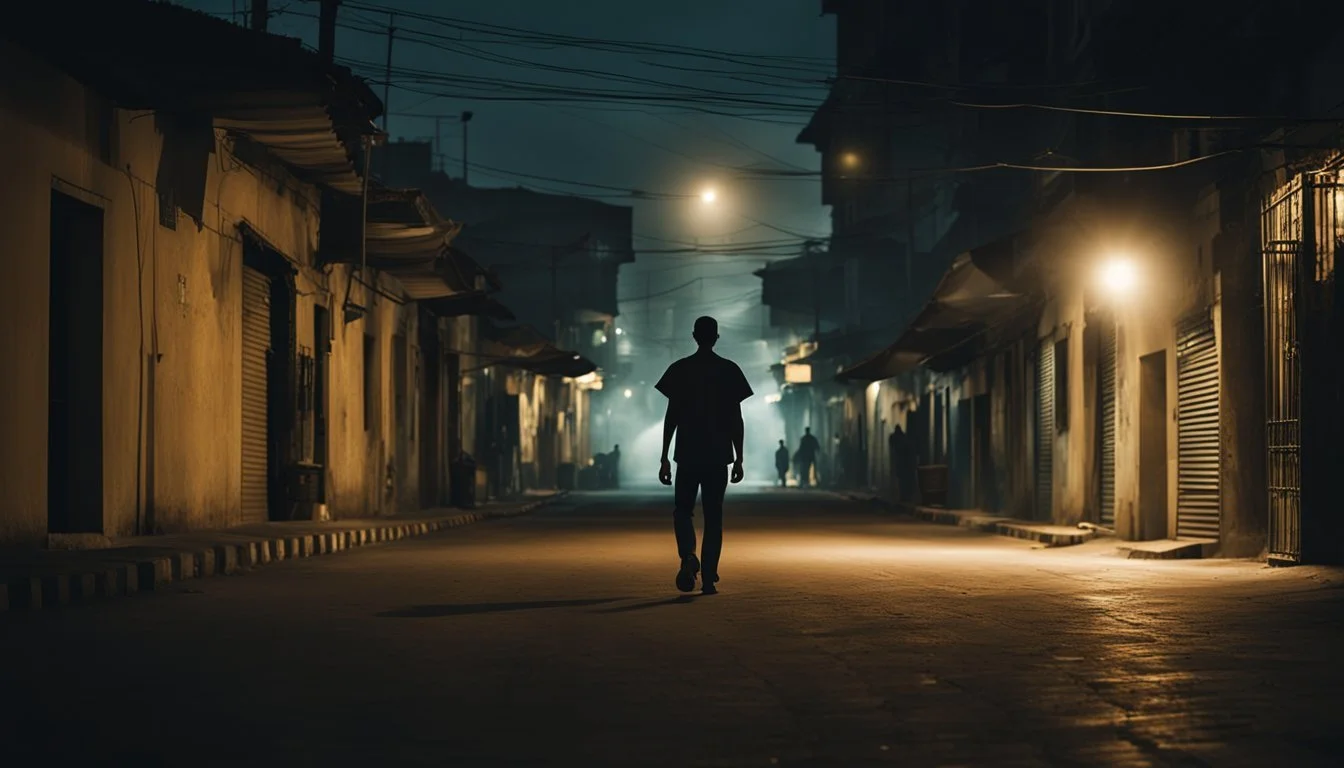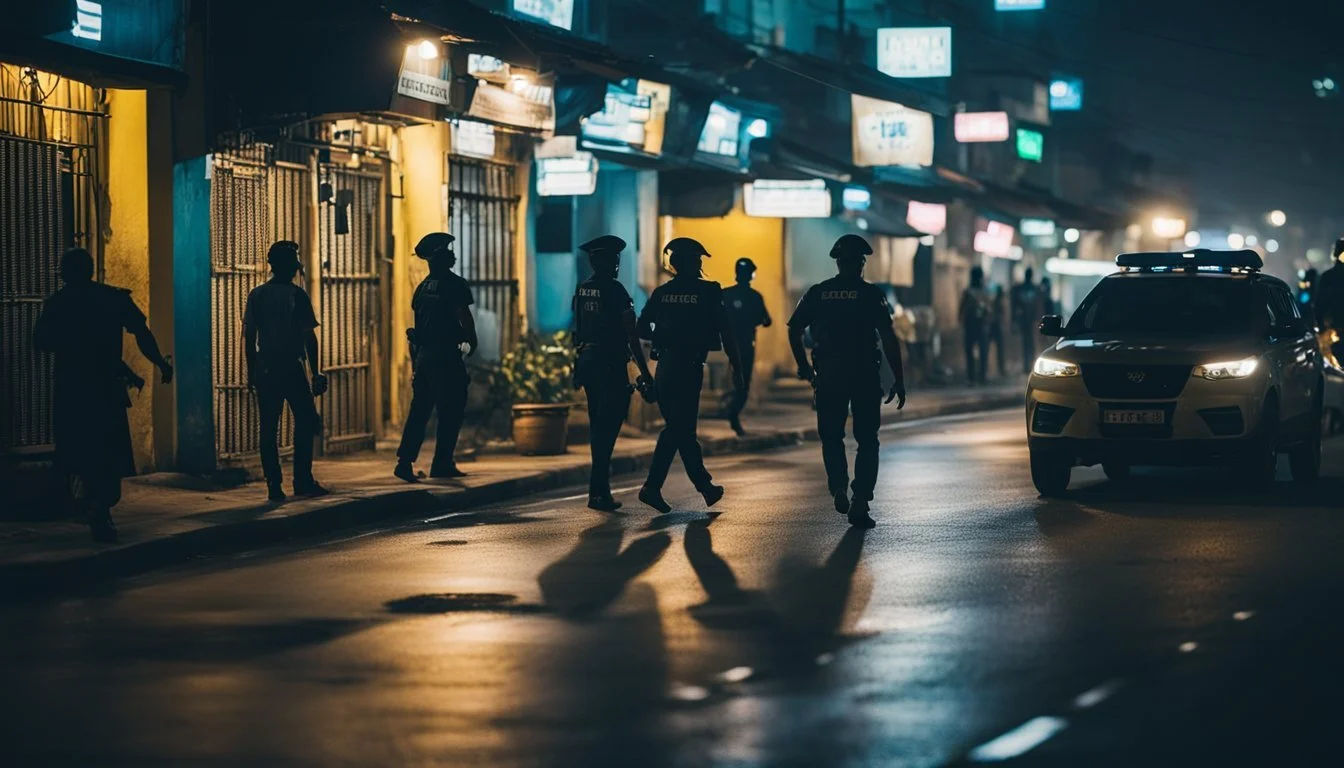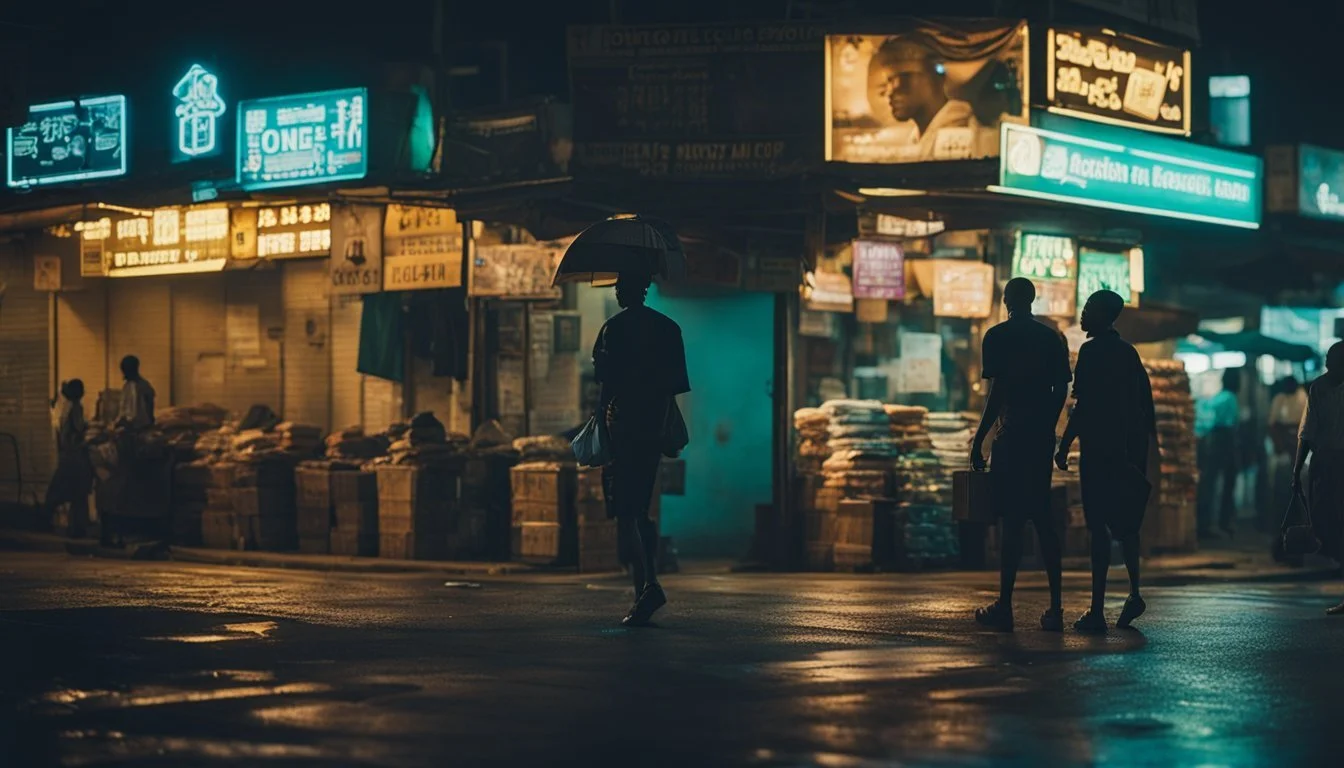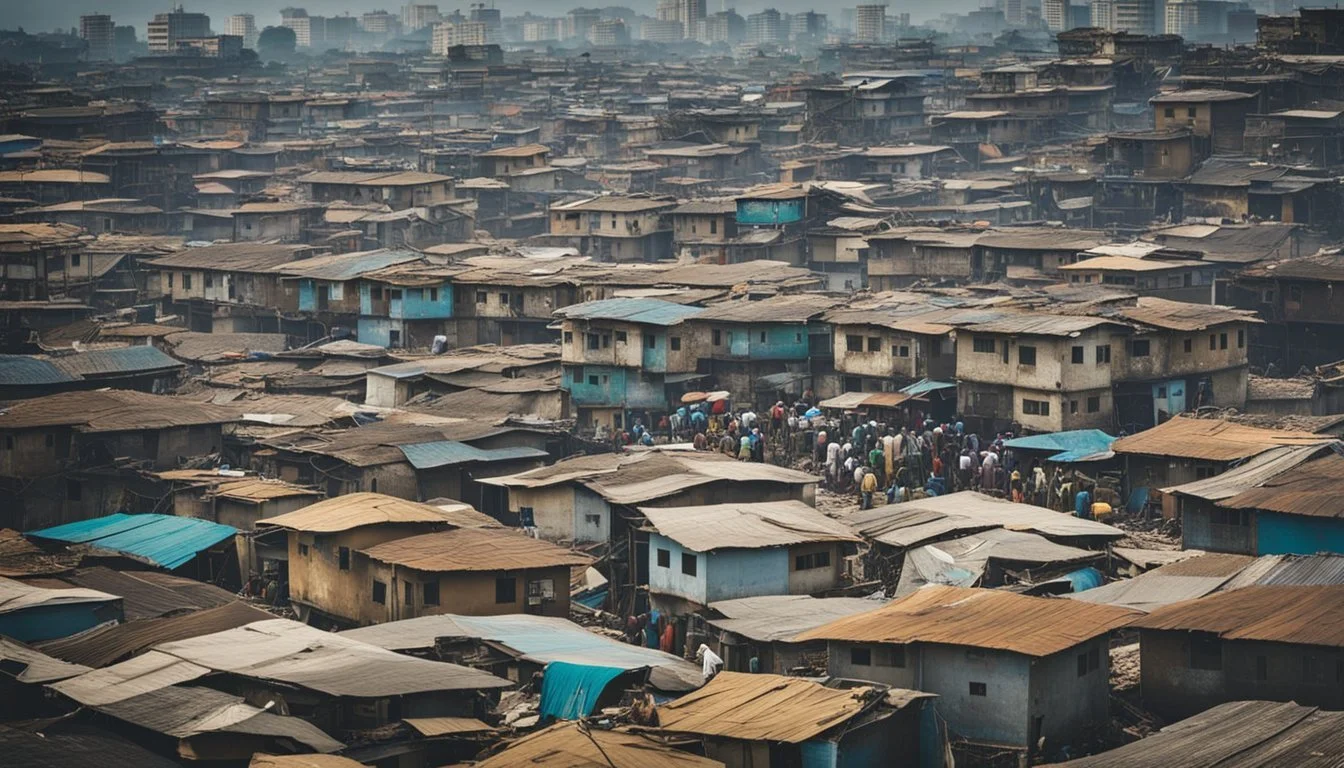5 True Crime Documentaries About Crimes in Lagos
Unveiling the City's Darkest Secrets
The bustling metropolis of Lagos, Nigeria, has long been a vivid backdrop for countless stories of crime, corruption, and survival. With its dynamic mix of cultures and economic disparities, Lagos presents a ripe setting for true crime documentaries that capture the raw and often unsettling realities of the city.
For those intrigued by the complexities of urban crime, Lagos offers a treasure trove of gripping tales that highlight the darker sides of human nature and societal structures. These documentaries shed light on the intricate web of crime that permeates the city, delving into everything from organized gangs to individual acts of violence.
1) Cold Justice: Nigerian Mysteries
"Crime and Justice Lagos" (2022) explores the complex and often harrowing criminal landscape of Lagos, Nigeria's most populous city. The series, a Showmax Original, delivers a gripping look at both solved and unsolved cases handled by the Serious & Special Crimes Unit (SSCU) of the Nigeria Police Force.
Headed by the calm and reassuring DCP Femi Biboye, the SSCU tackles a variety of crimes, from murder to high-profile kidnappings. Each episode delves into the procedural aspects of these investigations, showcasing how the team navigates the unique challenges posed by Lagos' bustling, diverse environment.
The series features a compelling ensemble cast, including Folu Storms, Ibrahim Jammal, and Margaret Osuome. Their performances bring depth to the stories, highlighting the human aspect of law enforcement and the impact of crime on the community.
Viewers will witness the meticulous process of gathering evidence, interviewing suspects, and overcoming bureaucratic hurdles. The show aims to provide an authentic portrayal of Nigerian crime-solving efforts, shedding light on both the triumphs and struggles of the SSCU.
For more information about "Crime and Justice Lagos," visit IMDb.
2) The Lagos Ripper: Unveiled
The true crime documentary "The Lagos Ripper: Unveiled" (2023) delves into the chilling case of a notorious serial killer in Lagos. The film meticulously explores the investigation and the profound impact on the community.
The Lagos Ripper, as he became known, terrorized the city in the late 1990s. His victims were often young women, and his crimes left a lasting scar on the city's psyche.
Through interviews with law enforcement, survivors, and journalists, the documentary paints a vivid picture of the hunt for this elusive criminal. The film highlights the challenges faced by the police in a city as vast and densely populated as Lagos.
Archival footage and recreated scenes provide an immersive viewing experience, bringing to life the horrors that gripped Lagos during this dark period.
This documentary offers a deep dive into the criminal's psychology, as well as the tireless efforts of those who sought to bring him to justice. It stands as a testament to the resilience of a community in the face of fear.
For more information on "The Lagos Ripper: Unveiled", check out the IMDb page here.
3) Crime Stories: Lagos Chronicles
Lagos, a city teeming with life, has its own share of crime stories that have gripped the public's imagination. These documentaries explore the complex layers of crime in Lagos, revealing both the city's dark side and its resilience.
Gangs of Lagos (2024)
Jade Osiberu's Gangs of Lagos chronicles the gritty reality of gang life in Nigeria's bustling city. Through the story of young Obalola, the documentary paints a vivid picture of the challenges and legacy of street life. It's a stark portrayal of how systemic issues can lead young men down a path of crime. More Information
Crime and Justice Lagos (2022)
This TV series focuses on the Serious and Special Crimes Unit (SSCU) of the Nigeria Police Force. It provides insight into the unit's efforts to tackle unique criminal challenges in Lagos. Led by the charismatic DCP Femi Biboye, this series showcases both the struggles and triumphs of maintaining law and order. More Information
Cocaine Cowboys: The Kings of Miami (2021)
Although this docuseries primarily focuses on Miami, it includes significant references to international crime networks that intersect with Lagos. It sheds light on the global reach of illicit trades and the part Lagos plays in this underworld. More Information
4) Lagos Drug Lords: Undercover
Lagos Drug Lords: Undercover (2023) is an engaging crime documentary that dives deep into the hidden world of drug trafficking in Lagos.
This film follows undercover operatives who infiltrate drug rings, exposing the intricate web of connections in the city's underground. Viewers can witness firsthand the dangerous and high-stakes operations to bring down these criminal networks.
The documentary paints a vivid picture of the challenges law enforcement faces, such as corruption and the sophisticated methods traffickers use to evade capture. It shines a spotlight on both the human cost of the drug trade and the tireless efforts to combat it.
For more details about Lagos Drug Lords, visit IMDB.
5) Marina Murders: Investigations
The Marina Murders shook Lagos to its core, leaving the city's residents in fear. This documentary meticulously tracks the investigation process, shedding light on the methods used by local law enforcement agencies.
In 2020, a series of unexplained deaths in Lagos' Marina district led to widespread panic. Authorities quickly launched a thorough investigation.
The film includes interviews with police officers who worked tirelessly to solve the case. Viewers gain insight into the strategies employed by detectives.
Eyewitness accounts and forensic experts play a crucial role in the narrative. The documentary demonstrates how modern technology and traditional investigative techniques merge to crack the case.
For more information, see Marina Murders: Investigations (2020) on IMDb.
Historical Context of Crime in Lagos
Lagos, a bustling metropolis, has experienced significant shifts in crime patterns over time, influenced by its historical and socio-economic transformations. These shifts can be traced back to the colonial era through post-independence times.
Colonial Era Crime
During the colonial period, Lagos was a major administrative and trading hub under British control. This era saw a complex interplay of local and colonial laws, often causing friction and resulting in various forms of crime.
Crime was relatively low-key, often involving petty theft and local disputes. The imposition of British law sometimes clashed with indigenous practices, leading to misunderstandings and resistance.
The colonial administration attempted to establish law and order through policing structures that were new to the local population. Despite these efforts, illegal activities like smuggling and underground trade persisted, partly due to economic disparities and the struggle for resources.
Post-Independence Crime Dynamics
After Nigeria gained independence in 1960, Lagos's crime dynamics changed significantly. Urbanization rapidly increased, leading to social upheaval and new types of crime. During the military regimes between 1966-1979 and 1984-1999, governance lapses and economic challenges exacerbated these issues.
The influx of people into Lagos created densely populated areas with high unemployment rates, contributing to a rise in criminal activities. Youth unemployment, in particular, became a major driver of crime, with many young people turning to illegal means for survival.
Vigilante groups and informal crime control measures emerged as communities sought to protect themselves amidst perceived inefficiencies in formal policing. Additionally, the culture of "Area Boys" – gangs of young men involved in various criminal activities – became prominent during this period, reflecting broader socio-economic challenges.
Socioeconomic Factors Contributing to Crime
In analyzing the crime rates in Lagos, it is crucial to consider the underlying socioeconomic factors. This includes looking at poverty, unemployment, urbanization, and infrastructure challenges, which all play significant roles.
Poverty and Unemployment
High levels of poverty and unemployment are major contributors to crime in Lagos. Many individuals, especially the youth, lack access to stable employment opportunities. Unemployment rates among youth aged 13 to 40 are notably high, pushing some toward criminal activities as a means of survival.
Poor economic conditions result in limited access to essential services such as education and healthcare. This lack of resources and opportunities increases vulnerability to criminal behavior. The disparity between the rich and poor further aggravates these issues, fostering environments where crime can thrive.
Urbanization and Infrastructure Challenges
Rapid urbanization in Lagos has led to overcrowded neighborhoods and significant strain on existing infrastructure. Many areas lack adequate housing, sanitation, and public transportation systems. These underlying infrastructure deficiencies contribute to higher crime rates by creating conditions where illegal activities can flourish.
The influx of people into urban areas often results in informal settlements with limited government oversight. These settlements can become hotbeds for criminal activities due to their lack of formal policing and community support structures. Moreover, inadequate street lighting and poorly maintained roads facilitate criminal actions, making it harder for law enforcement to maintain control.

